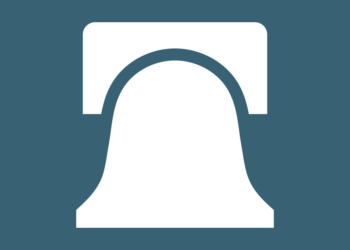Editorial note: this essay originally appeared at The Giving Review.
“The drama of postliberal progressivism,” New York Times columnist Ross Douthat writes on October 4, “is a drama of ideological influence and institutional power, in which activists and elites effect dramatic change outside the democratic process and then try to survive or sidestep backlash from the voters.” The typically insightful column, “Why Left and Right Can’t Understand Each Other’s Fears,” is not explicitly about philanthropy. But it is.
Establishment philanthropy has been and is comprised of, and has been supportive and supports, the activists and elites effecting change outside the democratic process and then trying to survive or sidestep backlash. It’s at the center of ideological influence and institutional power in America. It’s a—if not the—principal protagonist in what Douthat recognizes in the establishment Times as the drama of postliberal progressivism.
“It’s a drama where sudden changes seem to just happen,” continues Douthat, “without having a singular progressive leader who claims responsibility and provides the policy with a charismatic face.” He provides some specific examples, from America and around the world.
“With some of these changes, progressives argue that they’re happening outside politics entirely and thus can’t be oppressive or threatening in the way that a charismatic right-wing demagogue can be,” Douthat notes.
How can the woke be running everything in Britain, they ask, if there were Tory prime ministers until recently? How is it the Democratic Party’s fault if private universities impose ideological litmus tests or social media mobs get people fired by private employers? How can it be “postliberal” or censorious for social media giants to police their users’ speech when they’re private companies?
Lines
Similarly, in the case of Big Philanthropy and the nonprofit sector through which it funds activists effecting change outside the democratic process, of course, progressives are now essentially asking: How can all of the private, Tocquevillian civil society that does so much good and charitable possibly be part of any consideration of why public discourse has descended into a polarized fury that’s crossed the line into gruesomeness? How, the arrogant attitude seems to dismissively say, can one even ask?
The invocation of civil society as part of this defense is unconvincing, too convenient, and particularly galling, actually. It’s not the trusted Tocquevillian groups engaged in true charitable work that are giving rise to the just-getting-started backlash, much as those making this defense understandably want to courageously be standing “with”—but really, cowardly, behind—those good groups.
Rather, it’s mostly the nonprofits practicing decidedly non- or acharitable partisan politics and those who support them. The properly back-on-their-heels defenders know this. These groups and their philanthropic funders are much less trusted, of course, including because of their falsely clothing themselves in the justified moral authority of apolitical charity. They are, in fact, well inside the lines of politics. (For that matter, many are—or were—lines right in government budgets.)
They’re only pretending to practice real charity, they’re failing, and they sense this, too. They’re trying to “free ride” on well-warranted trust in others; they’re essentially trust-takers, in truth, or are trying to be. They are not doing well at this either, though, and they should ultimately fail even more miserably. The masks in this drama should be dropped, or perhaps at least not secured in place by tax provision.
Douthat is right: we should all seek to understand each other more and better, including others’ fears. He concludes by characterizing Donald Trump as the political beneficiary of a “personalist kind of postliberalism,” which the country chose “out of fear of the alternative, and there is great wisdom in understanding the landscape in which that choice was made.
“But personalism alone cannot stabilize or govern durably, any more than elite progressivism can simply manage democratic sentiment away.”











